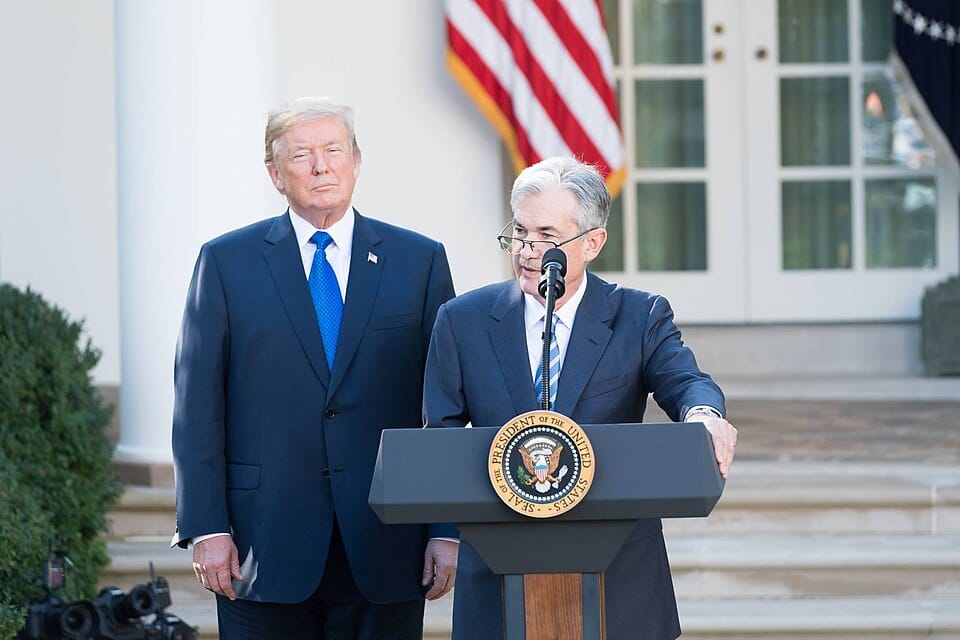How A Critical Financial Market Reacts To President Trump's Policies

One of the most fascinating aspects of our current society is the tendency to equate nearly every public policy with the Stock Market. This is more than understandable as many Americans have their future tied up in various financial accounts, from retirement accounts, college education accounts, endowments, and estate planning. The majority of these accounts are funded through multiple equity funds and programs, as well as direct investments in stocks and bonds.
The result of all this has been that we immediately turn to the stock indexes to determine whether a public policy is beneficial or not. For instance, when President Donald Trump announced the first round of global tariffs on April 2, the market promptly swooned, with the Standard & Poor's 500 declining by 7% over the next week, a decline that has since been more than overcome.
This back-and-forth evaluation has proven helpful in guiding us through the ups and downs we are currently experiencing. Additionally, the financial markets offer a distinct perspective for country leaders to gain immediate feedback.
However, the American Stock Markets are dominated by US Citizens and Organizations. Wouldn't it be interesting to see how other countries and investors view current American Policies, especially now that so much of what we've undertaken takes place outside our borders? Not just tariffs but the deportation of aliens who may be in this country illegally, or actions we may take in the Russian-Ukraine War, or, most recently, our actions in support of Israel in its battle against Iran, all impacting foreign countries.
One such market does exist. It's the Foreign Exchange Market (FOREX). On this market, the US Dollar trades against all the other currencies in the world. The St. Louis Federal Reserve tracks the Weekly movements of the US Dollar Index (Nominal), which is available to everyone.
Like almost all financial indicators, there is a nearly infinite number of factors that contribute to the ups and downs of the Dollar Index. However, as the Dollar Index rises, investors and financial entities are becoming increasingly positive about our Country's Currency, and the opposite is true as the Index falls.
Examining the chart below, we can see that in the waning days of 2024, the worldwide attitude toward America was becoming more ebullient. By the first week of 2025, the Dollar Index had reached a record high of 130. However, since then, the Index has declined by roughly 6% during the period corresponding to President Trump's term in office.
Is this due to a global reaction to the many Trump Policy changes, such as tariffs, deportations, or military support? It's likely too early to make a definitive statement. The currency markets may be responding to some of the gains made in the months following the election but before the inauguration. Time will tell what the reason for the decline is. But two things are clear.
First, imported goods will cost more as the value of the dollar declines. And this is above and beyond the effects of the added tariffs. Assuming that the tariffs are currently set at 10% (although there is a wide range among countries), this 6% decline in the Dollar Index would translate into a 16% rise in the price of foreign goods.
Secondly, this decline in the Dollar Index may be the real reason behind the Federal Reserve's reluctance to lower interest rates. As you know, there is a real donnybrook between President Trump and Federal Reserve Chairman Jerome Powell, with the President threatening to fire Powell. According to all reports, the President aims to stimulate the economy by lowering interest rates. At the same time, the Chairman appears to be concerned about inflation, which is currently declining.
Unfortunately, the Fed Chairman is at a disadvantage here. The Fed rarely lays all of its cards on the table. There are often other issues that go unstated and influence the Fed's moves. One of those is the relative performance of the US Dollar. As the central bank, the Fed is responsible for defending the Dollar against a precipitous decline. As we've seen, if the Dollar declines, import prices rise, and that means increased inflation, which is something the Fed has a congressional mandate to avoid.
So, the Fed finds itself in a pickle: if it lowers interest rates, the result will be a lower Dollar Index, which would inevitably lead to rising inflation. But that's just what the President wants. For Chairman Powell, this is an especially poignant moment to ignore that the President may cost him his job, yet that is just what he did this week by holding interest rates steady.
The Fed meets again in six weeks with, no doubt, more of this story to come.
Follow me here on ValueSide.